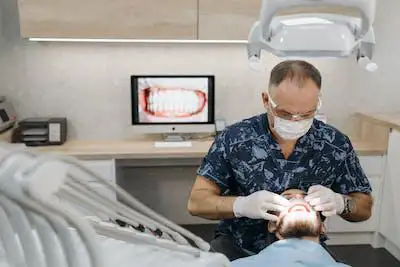The answer, fortunately, is a resounding yes, with certain nuances. Dental care, contrary to popular belief, shouldn't be sidelined during pregnancy. In fact, maintaining good oral hygiene and scheduling regular dental checkups are crucial for both mother and baby's well-being.
Demystifying the Myths:
Before diving into the specifics, it's important to address the lingering myths that often fuel anxiety surrounding dental work during pregnancy. The notion that dental procedures can harm the developing baby is unfounded. Modern advancements in dental technology and anesthetics ensure minimal risk to both mother and fetus. Additionally, the belief that dental X-rays are detrimental is outdated. With proper shielding, minimal doses of radiation are used, posing no significant threat.
Benefits of Dental Care During Pregnancy:
Maintaining good oral health during pregnancy offers a cascade of benefits:
Reduced Gum Disease Risk: Pregnancy hormones can exacerbate gum inflammation and bleeding, increasing the risk of gingivitis and periodontitis. These conditions, left untreated, can lead to bacterial infections that may adversely affect the baby's health, potentially contributing to low birth weight or preterm birth. Regular dental cleanings and checkups help curb such risks, keeping your smile healthy and minimizing potential harm to your baby.
Pain Management: Addressing existing dental issues like toothaches or cavities reduces discomfort and prevents potential complications like abscesses, which can require stronger medications and pose greater risks during pregnancy.
Overall Well-being: Good oral health contributes to overall well-being, impacting energy levels and self-confidence. Taking care of your teeth during pregnancy can boost your mood and positively impact your emotional state, fostering a healthier environment for both you and your baby.
Navigating the Trimester Maze:
While dental care is safe throughout pregnancy, certain considerations apply across the trimesters:
First Trimester: This period of organ development is considered by some to be a time for caution. Elective procedures can be postponed, but essential treatments like pain management or urgent repairs should be addressed promptly.
Second Trimester: This "golden window" is ideal for most dental procedures. The risk of miscarriage is typically lower, and you're likely more comfortable lying back for extended periods. Routine cleanings, fillings, and even minor gum surgeries can be safely performed during this time.
Third Trimester: As your belly grows, lying flat for extended periods can become uncomfortable. Priority goes to urgent procedures, while elective treatments are best postponed until after delivery.
Open Communication is Key:
Regardless of the trimester, open communication with your dentist is paramount. Inform them about your pregnancy at the outset, discuss any concerns you have, and provide details about your medications and health history. Your dentist will tailor their approach to your specific needs and ensure the safest and most effective treatment plan.
Beyond the Dentist's Chair:
Maintaining good oral health goes beyond scheduled appointments. Here are some tips for expecting mothers:
Brush your teeth twice daily and floss once. Fluoride toothpaste helps prevent cavities, while flossing removes plaque and bacteria between teeth.
Eat a balanced diet rich in calcium and other nutrients. This supports strong teeth and bones for both you and your baby.
Limit sugary drinks and snacks. These can contribute to cavities and gum disease.
Stay hydrated. Drinking plenty of water helps clear bacteria from your mouth and keeps your body healthy.
Don't hesitate to contact your dentist if you experience any oral pain, bleeding, or swelling. Early intervention can prevent complications.
Conclusion:
Prioritizing dental care during pregnancy is not just about maintaining a bright smile; it's about investing in the well-being of both mother and child. By dispelling myths, understanding the timing considerations, and practicing good oral hygiene habits, expecting mothers can navigate the world of prenatal dental care with confidence. Remember, a healthy mouth contributes to a healthy pregnancy, paving the way for a joyful and healthy arrival.
Word count: 1521
Additional Resources:
American Dental Association: https://www.ada.org/en/resources/research/science-and-research-institute/oral-health-topics/pregnancy
American Congress of Obstetricians and Gynecologists: https://www.acog.org/clinical/clinical-guidance/committee-opinion/articles/2013/08/oral-health-care-during-pregnancy-and-through-the-lifespan
March of Dimes: https://www.marchofdimes.org/
I hope this information empowers you to make informed decisions about your dental care during pregnancy. Enjoy the journey towards motherhood, and remember, a healthy smile shines both inside and out!

